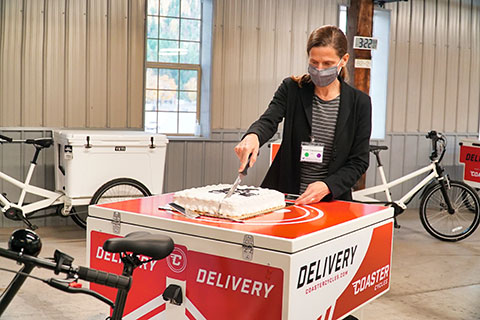
In celebration of its fifth anniversary, the Supply Chain Transportation and Logistics Center (SCTL) is looking in the rearview mirror. In five years, the Center has made progress defining urban freight management problems, measuring and quantifying the urban freight system, and designing and pilot testing novel solutions to make urban freight more efficient and sustainable.
The Center is home to the Urban Freight Lab, founded in October 2016 as an innovative partnership that brings together academic researchers, private industry and governmental agencies. The Lab’s work is focused on a problem area they identified as the “Final 50 Feet,” now a widely used term that describes when delivery drivers must locate both parking and customers. The Lab recently completed a three-year project to reduce energy consumption in urban delivery, funded by a $1.5 million U.S. Department of Energy grant with additional contributions.
The Lab has undertaken numerous innovative projects, including piloting a common-carrier parcel pick-up locker system at the 62-floor Seattle Municipal Tower, which enabled drivers to deliver to numerous recipients with just one stop. Three other locker systems were installed in Seattle’s Belltown neighborhood along with in-ground sensors to gather data about delivery patterns and loading zones. Researchers also developed OpenPark, a first-of-a-kind app providing real-time and predicted parking availability, and piloted one of the nation’s first zero operating emissions delivery hubs that utilized electric-assist cargo bikes, delivery routing software, and electric pallets to move parcels from a transportation hub to customers.
The Lab looks forward to continuing their work and seeing the transformation of the urban freight system into a safe, sustainable and accessible system for all.